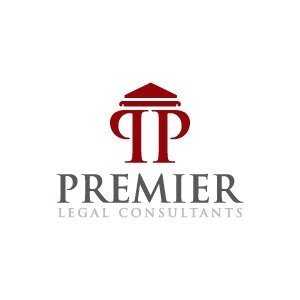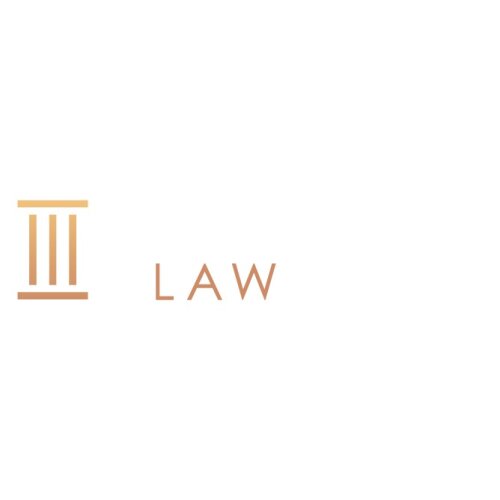Best Drunk Driving Lawyers in Colombo
Share your needs with us, get contacted by law firms.
Free. Takes 2 min.
List of the best lawyers in Colombo, Sri Lanka
About Drunk Driving Law in Colombo, Sri Lanka:
Drunk driving laws in Colombo, Sri Lanka are strict and aim to ensure the safety of all road users. It is illegal to operate a motor vehicle while under the influence of alcohol or drugs that impair your ability to drive. Violators can face severe penalties, including fines, license suspension, and even imprisonment.
Why You May Need a Lawyer:
You may need a lawyer for several reasons related to drunk driving cases. Some common situations where legal help is necessary include:
- If you are charged with a DUI offense and want professional guidance to understand the charges against you.
- If you want to contest the charges and build a strong defense strategy to minimize potential penalties.
- If your case involves complex legal issues, such as accidents resulting in injuries or fatalities.
- If you need assistance navigating the legal system and ensuring your rights are protected throughout the process.
- If you require guidance on the best course of action based on the specific circumstances of your case.
Local Laws Overview:
Key aspects of local laws relevant to drunk driving in Colombo, Sri Lanka include:
- The legal blood alcohol concentration (BAC) limit is 0.03%. Exceeding this limit may lead to a DUI charge.
- Law enforcement officers have the authority to conduct sobriety tests, such as breathalyzer tests, to determine impairment.
- If convicted, penalties can range from fines and license suspension to imprisonment, depending on the severity of the offense.
- Repeat offenders may face more severe consequences, including longer license suspensions and higher fines.
- Driving under the influence of drugs, including prescription medications, is also considered a violation of the law.
Frequently Asked Questions:
1. Can I refuse to take a breathalyzer or sobriety test?
Refusing to take a breathalyzer or sobriety test can have consequences, such as license suspension. However, the specific penalties for refusal may vary depending on local laws and circumstances. It's advisable to consult with a lawyer to understand the potential implications.
2. What should I do if I am stopped by the police for suspected drunk driving?
If you are stopped by the police for suspected drunk driving, it is important to remain calm and cooperate with the officers. Avoid making any self-incriminating statements and contact a lawyer as soon as possible for guidance on how to proceed.
3. How can a lawyer help me in a drunk driving case?
A lawyer specializing in drunk driving cases can provide valuable assistance by analyzing the evidence against you, identifying potential defenses, and representing you in court. They can negotiate with prosecutors on your behalf, guide you through legal procedures, and work towards minimizing penalties or securing a favorable outcome.
4. Are there alternative consequences to imprisonment for drunk driving convictions?
Yes, depending on the circumstances, the court may impose alternative consequences instead of imprisonment. These may include fines, community service, mandatory alcohol education programs, probation, or a combination of these. The specific penalties will be determined by the court, considering factors such as your previous record and the severity of the offense.
5. Can I represent myself in a drunk driving case?
While it is possible to represent yourself in a drunk driving case, it is generally not advisable. The legal procedures and requirements can be complex, and an experienced lawyer can offer invaluable knowledge and expertise to help protect your rights and achieve the best possible outcome.
Additional Resources:
For additional information and resources related to drunk driving and legal advice in Colombo, Sri Lanka, you may find the following helpful:
- Sri Lanka Police Traffic Department: The official website of the Sri Lanka Police Traffic Department provides information on road safety, traffic regulations, and contact details for any related inquiries.
- Lawyers' Association of Sri Lanka: An organization that can assist in finding qualified lawyers specializing in DUI cases and provide legal resources.
Next Steps:
If you require legal assistance regarding a drunk driving charge in Colombo, Sri Lanka, follow these steps:
- Contact a reputable lawyer specializing in drunk driving cases.
- Arrange a consultation to discuss your case and receive guidance on the best course of action.
- Provide your lawyer with all the necessary information and documents related to your case.
- Follow your lawyer's advice and instructions to build a strong defense strategy.
- Attend all required court hearings and cooperate with your lawyer throughout the legal process.
Lawzana helps you find the best lawyers and law firms in Colombo through a curated and pre-screened list of qualified legal professionals. Our platform offers rankings and detailed profiles of attorneys and law firms, allowing you to compare based on practice areas, including Drunk Driving, experience, and client feedback.
Each profile includes a description of the firm's areas of practice, client reviews, team members and partners, year of establishment, spoken languages, office locations, contact information, social media presence, and any published articles or resources. Most firms on our platform speak English and are experienced in both local and international legal matters.
Get a quote from top-rated law firms in Colombo, Sri Lanka — quickly, securely, and without unnecessary hassle.
Disclaimer:
The information provided on this page is for general informational purposes only and does not constitute legal advice. While we strive to ensure the accuracy and relevance of the content, legal information may change over time, and interpretations of the law can vary. You should always consult with a qualified legal professional for advice specific to your situation.
We disclaim all liability for actions taken or not taken based on the content of this page. If you believe any information is incorrect or outdated, please contact us, and we will review and update it where appropriate.













